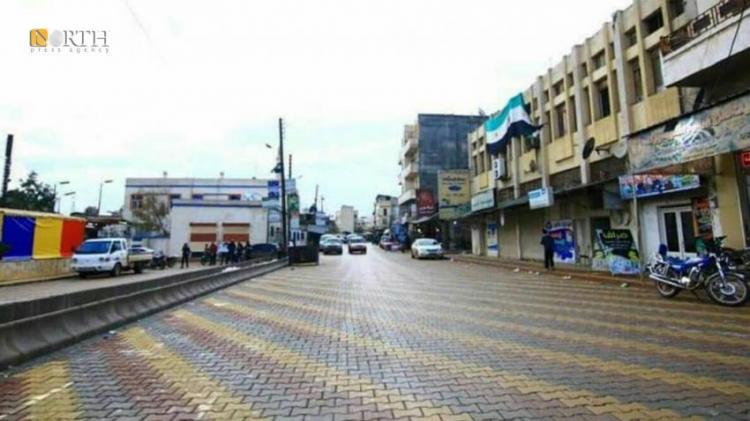ALEPPO, Syria (North Press) – After the collapse of the Syrian pound in conjunction with replacing it with the Turkish lira in daily dealings in areas controlled by Turkish-backed armed opposition groups, most of doctors in the city of Azaz raised the price of the medical tests in their clinics, which created a state of resentment among the population.
Nahed Salem, 28 years old, from the village of Akdah in the eastern countryside of Azaz, told North Press that she was constantly visiting doctors to be treated hoping that she could have a baby, but she has stopped since the collapse of the exchange rate of the Syrian pound against the dollar, and the dealing in the Turkish and foreign currencies in the opposition groups-held areas.
"The high cost of diagnostic tests forced us to stop seeing the doctors, as it costs five dollars after it was four thousands Syrian pounds, which is twice what my husband gets in a day of work," she added.
The 24 – year- old housewife Riham Khidir, who lives in the city of Azaz, told North Press that high costs of tests in the city, and the refusal of the Syrian pound by some of the doctors , prompted the residents to search for an alternative, "I resorted to explain my condition to the pharmacist, or to a doctor through the phone, just to be able to afford for my medicines," she said.
While Abu Abdullah Homsi, 45 years old, who is a displaced person from Homs Governorate and lives in the city of Azaz, told North Press that he goes to a free medical center in the city. “I am cannot afford to pay 15 or 20 Turkish lira for the doctor,” he said.
The dentist Obada Qurbi told North Press about the high cost of examination, “I buy the medical materials in dollars, in addition to the clinic's rent, therefore, treatment costs will not remain the same as last year.”
With the increasing suffering of the people in the areas controlled by Turkish-backed opposition groups, especially the one related to health, because the region lacks medical staff, in addition to the lack of medicines in health centers and pharmacies.
Furthermore, there is an increased fear of a potential health disaster, after detecting a number of infections with coronavirus in a region housing tens of thousands of displaced people, amid the absence of the role of institutions affiliated with the Turkish-established structures of opposition groups.

